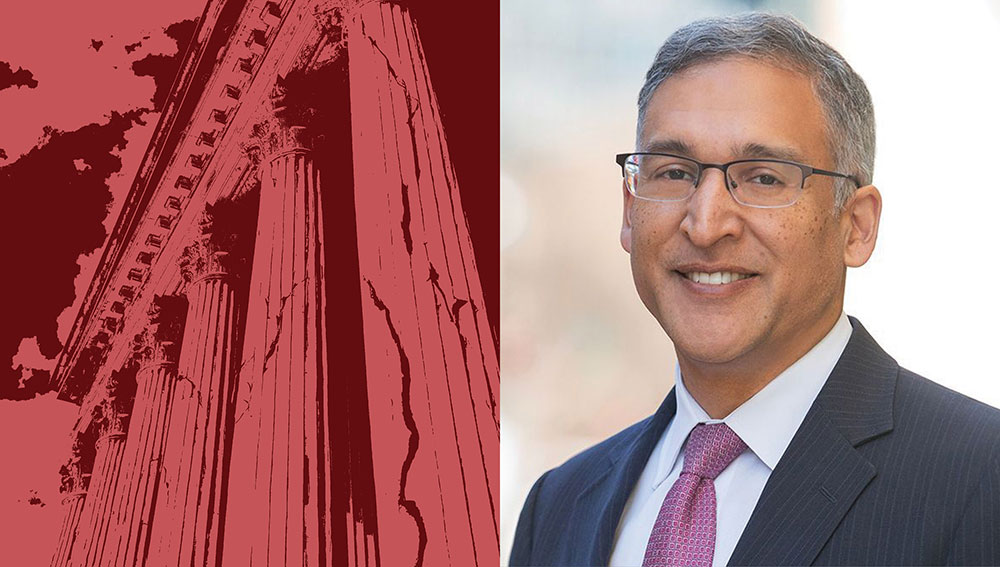
Loyola University Maryland will welcome Neal Katyal, J.D., former acting solicitor
general of the United States, for a keynote talk hosted by the Center for the Humanities
on Wednesday, Dec. 3, at 6 p.m. in McGuire Hall. The event, titled “The Supreme Court in a Time of Crisis,” is free and open to the public. Advance registration is encouraged.
Katyal is the Paul and Patricia Saunders Professor of Law at the Georgetown University
Law Center, where he focuses on constitutional law, criminal law, and intellectual
property. He is also a partner at Milbank LLP. A New York Times bestselling author, he served as acting solicitor general of the United States during
the Obama administration from 2010-11.
“Neal Katyal has argued over 50 cases before the U.S. Supreme Court and has been before
it again in early November as the advocate for a group of small businesses challenging
President Trump’s tariffs as unlawful,” shared Martha C. Taylor, Ph.D., chair and
professor of classics. “We are excited to host a litigator of Mr. Katyal’s stature
and experience on campus to address such timely and important issues.”
Katyal’s expertise lies in matters of constitutional, technology, corporate, patent,
securities, criminal, employment, and tribal law. During the 2022-23 term, he argued
five separate cases before the Supreme Court, nearly 10% of the docket. He received
the Edmund Randolph Award from the U.S. Justice Department in 2011—the highest honor
the department can bestow on a civilian—and has twice been named Litigator of the
Year by American Lawyer magazine.
The Center for the Humanities was established in 1983 through the generosity of many donors and the National Endowment
for the Humanities. It exists to provide strength and vision to the humanities at
Loyola University Maryland. To realize its goals, the Center sponsors a wide range
of programs, some of which are ongoing, others representing one-time grants. Programs
include lectures, lectures series, and fine arts performances; other forms of research
support for both faculty and students; and various forms of support for teaching in
the humanities.
